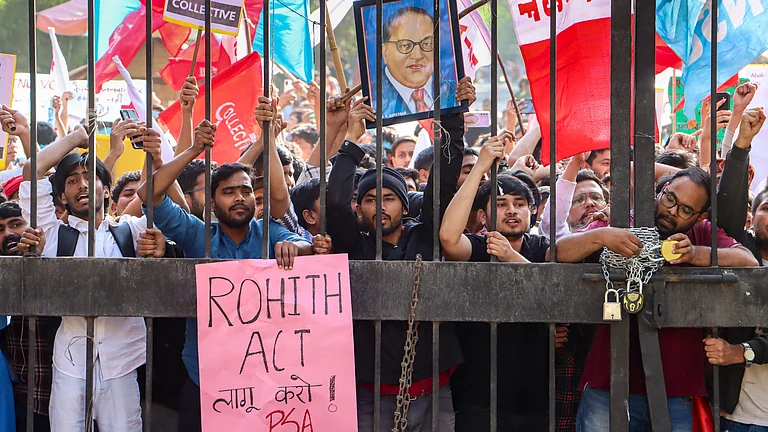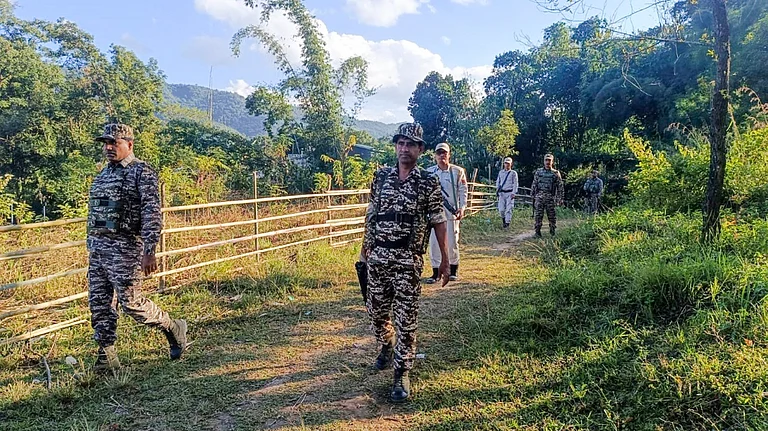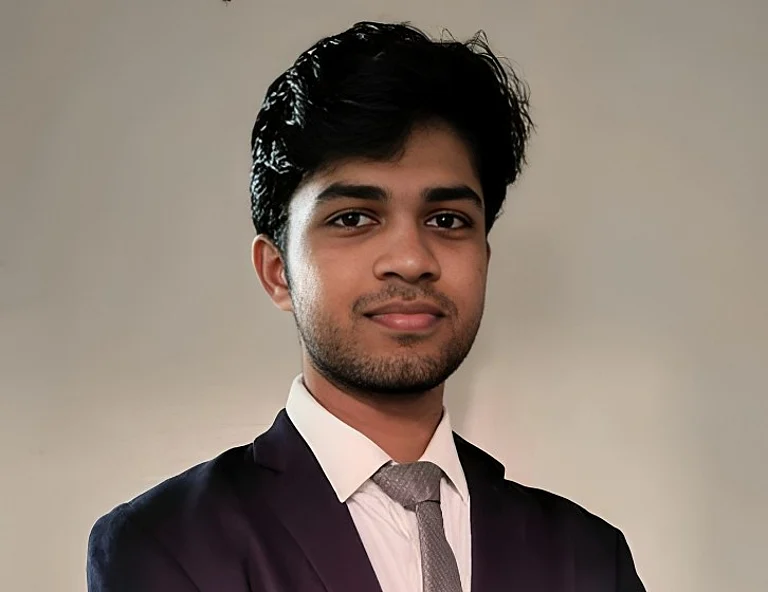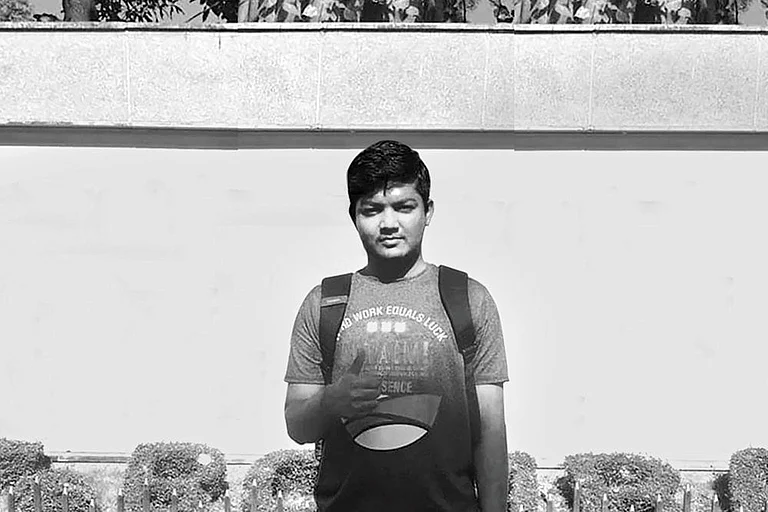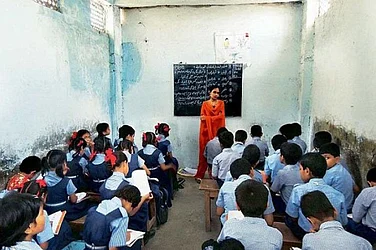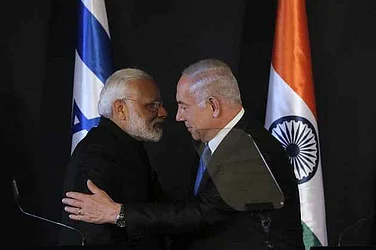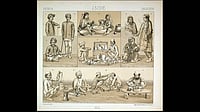
The essay argues that education should nurture leadership, critical thinking, and democratic values, not merely focus on market-driven skill development and job placements — a trend increasingly visible in India’s post-liberalisation private education system.
It highlights how student movements, such as Jayaprakash Narayan’s 1970s movement and the 1990s Mandal agitation, have historically played crucial roles in promoting social justice, equality, and political reform.
The piece questions why academic institutions often discourage student political engagement, especially among marginalised groups, suggesting that such opposition stems from fear of challenges to entrenched power structures.
“The Battle of Waterloo was won on the playing fields of Eton.” The leadership qualities, the nurturing of confidence and generating solidarity should be the rationale for any academic institution whether it is public or private. The values associated with Eton, both forged within the classroom and outside, helped the British in its colonial enterprise. More recently, Harvard University fought to retain its autonomy amidst the freezing of federal funds. In India, too many institutions are struggling to maintain their academic commitments in the face of statist pressure.
The past three decades have witnessed the mushrooming of private educational institutions which promise state-of-the-art infrastructure for the teaching-learning process. Needless to mention, such facilities come with a hefty price tag. When the state-run public education system is floundering, many students and parents with deep pockets desire to shift to institutions which would promise quality education. On their part, the private colleges/universities also try to attract students with fee waivers or scholarships coupled with aggressive marketing strategies. The state policies also encouraged such ventures.
However, in the post-liberalisation era, the purpose of education is limited to skill enhancement leading to job placements. The teaching-learning outcomes have to bae synchronised with the global market. The ‘students’ are not considered as a subject with their own agency for critical thinking, rather an empty vessel which can be filled up with factual knowledge. There is limited scope to conscientise them about the prevailing social, cultural and political life worlds. Ultimately, an infantilised consumer citizen is being fashioned.
The Idea of Politics
Is the idea of politics limited to voting during elections or participating actively to widen one’s horizons around the notion of rights, citizenship and democracy? Creating a democratic society is a work in progress, a continuation of India’s tryst with destiny. Jayaprakash Narayan (JP) had opined that students are crucial for any kind of social change. He considered students as less corrupt than traditional political leaders. Personally, he had also left college as a young nationalist in 1920 to join the freedom struggle.
The JP movement, initiated in Gujarat and Bihar in 1973-74, galvanised the student community to launch protests against political misrule. It also facilitated the emergence of many young leaders who went on to transform Indian politics.
Why is it then that student involvement in politics is opposed by various institutional structures? Why do institutions feel insecure when students indulge in politics, especially those belonging to the historically marginalised communities? Is it because the consolidation of these groups challenges the entrenched power elites?
In the 1990s, one witnessed the Mandal agitation which forged an alliance of deprived social groups to demand for affirmative action, equality and justice. These struggles still resonate both politically and socially.
Why do institutions feel insecure when students indulge in politics, especially those belonging to the historically marginalised communities? Is it because the consolidation of these groups challenges the entrenched power elites?
Subsequently, the current political regime has succeeded in demonising the vibrant political culture prevailing in state-funded campuses. On the contrary, the parochial, fascist ideologies have been provided a free hand to suppress democratic voices.
The Dalit-bahujan student groups are in the vanguard of protesting this undemocratic political culture. It is pertinent to mention the institutional murders of Rohith Vemula, Payal Tadvi, Darshan Solanki—to name a few—when the ‘purity’ of these academic spaces was questioned. When public institutions are narrowing down their commitment to issues of social justice, how does one perceive a private entity which functions solely on manufactured ‘merit’?
Cultivating Social Compassion
The ‘ideal’ student is visualised or even expected to be a docile and disciplined person who is only interested in the textbook/classroom and is oblivious to any kind of socio-political churning. The textbook is not produced in a vacuum, but is influenced by the larger society.
Hence, one needs to discern what is ‘political’ and ‘social’ in today’s parlance. Is getting admission in elite institutions the final seal of approval? How does one build social solidarity around shared interests? In state-funded institutions, the fear of the law can guarantee a modicum of implementation of rules, which is completely missing in privately-funded institutions.
Often, students and their guardians are made to sign an undertaking that their kids/wards will not indulge in any ‘political’ activities. One needs to advocate that the politics of presence in the place of silence is essential, more so in academics. A thorny issue has been the involvement of students in multiple political activities in these rarefied environs.

How does one map the journey of a Dalit-bahujan student in a private institution? If he/she is fortunate enough to possess enough finances to enter the portals of such institutions, how does one negotiate with the peer group and the elite teachers (many of them with foreign degrees)?
How does one cultivate a sense of belonging in such academic spaces? In India, where the primary identity is of caste/religion—which intersect with ethnicity, region, etc.—how does it affect the social dynamics in such elite settings? The family background, food habits, dress codes, all these have a bearing on one’s existence.
These choices also reflect a certain form of politics. For the holistic well-being of students, a diverse campus experience is essential. It can be in the form of art and cultural groups, reading circles, community/caste/gender groups, debating societies and sports facilities to create a vibrant ambience. This helps to forge a sense of belonging and solidarity amongst students, especially for those who belong to the marginalised groups. Such informal bodies are far easier to approach rather than the formal institutional mechanisms to resolve any crisis, whether on the academic or personal front. They are non-judgmental and provide instant support on any issue. Often, political organisations also play an important role in shaping the students’ consciousness. The coming together of a collective to struggle for their rights, choices and agency is essential to the very thought of being human.
The idea of politics cannot be simply reduced to electoral battles between established political ideologies; they also help to envision new forms of social existence. Being political also shapes the larger academic and socio-cultural interests. The Ambedkar-Phule-Periyar-Bhagat Singh Study Circles and LGBTQ associations generated debates around identities, social structures and habitus, which gradually led to new forms of knowledge production. It grants visibility to themes which are often ignored by the entrenched power groups, forcing them to acknowledge the winds of change. In the larger process, it helps to generate an inclusive pedagogy. If Dalit, tribal and gender studies are part of the curriculum today, it is because of the political struggles in the campuses, which eventually shaped academic discourses and policies. In many European universities, student-led protests raised the question, “Why is My Curriculum White?”
Who Needs the Politics of Protest?
At the age of 18 years in India, one becomes eligible to vote for one’s representatives at multiple levels, but no politics will be permitted on campuses. Is it because any form of questioning is now criminalised? To illustrate, Ashoka University has The Ashoka University Student Government (AUSG), an elected body run by students to represent the collective demand of the student body. In May 2024, students at Ashoka had protested against caste discrimination. They also demanded a caste census in the university. In January 2025 again, there were protests against the severe security norms imposed on the students stating that it violates their right to privacy. The Azim Premji University has a Savitri-Ambedkar Club to create a safe space for minorities and marginalised communities. They conduct screenings around anti-caste movements and social justice narratives. Where would we locate these initiatives by private universities? The naming of a student club ‘Savitri-Ambedkar’ is a clear recognition of the prevalence of social politics. Can these protests be considered as apolitical?
The current political regime has succeeded in demonising the vibrant political culture prevailing in state-funded campuses.
Despite their lofty claims, the data released by the Parliamentary Panel in August 2025 revealed the appalling representation of the SCs/STs/OBCs students in private educational institutions. In this scenario, the demand to introduce a Bill for Reservations for SCs/STs/OBCs in Private Educational Institutions by the Congress Party needs careful consideration. Both students and teachers are abysmally represented in these institutions. The governing bodies of these institutions hail from business houses that are increasingly aligning with the totalitarian state to protect their economic and ideological interests. Intellectual pursuits need to be accompanied by a moral compass, only then a critical habitus and radical empathy be forged. The strategy or the unwritten rule in such campuses is to devise academic programmes in such a manner that the student is continuously being evaluated—exams, projects, presentations and group discussions—and the grades are awarded by teachers. This intense scrutiny is to cultivate an ‘apolitical’ student. It generates a toxic ambience in which students either drop out or are silenced. There are increasing cases of student suicides on private campuses. ‘Velivadas’ (Dalit ghettos) continue to exist in our midst and they can only be demolished through conscious social and political action. To maintain a deliberate silence under such circumstances is also a political gesture as such silences are based on economic, socio-political and cultural capital. Such silences also help to validate one’s social location and also help maintain the status quo.
(Views expressed are personal)
N. Sukumar teaches political science in Delhi University. He is the author of Caste Discrimination And Exclusion In Indian Universities: A Critical Reflection
MORE FROM THIS ISSUE
This story appeared as Robbing An Arab Spring, Outlook’s November 1 issue, which explored how the spirit of questioning, debate, and dissent—the lifeblood of true education—is being stifled in universities across the country, where conformity is prized over curiosity, protests are curtailed, and critical thinking is replaced by rote learning, raising urgent questions about the future of student agency, intellectual freedom, and democratic engagement.








